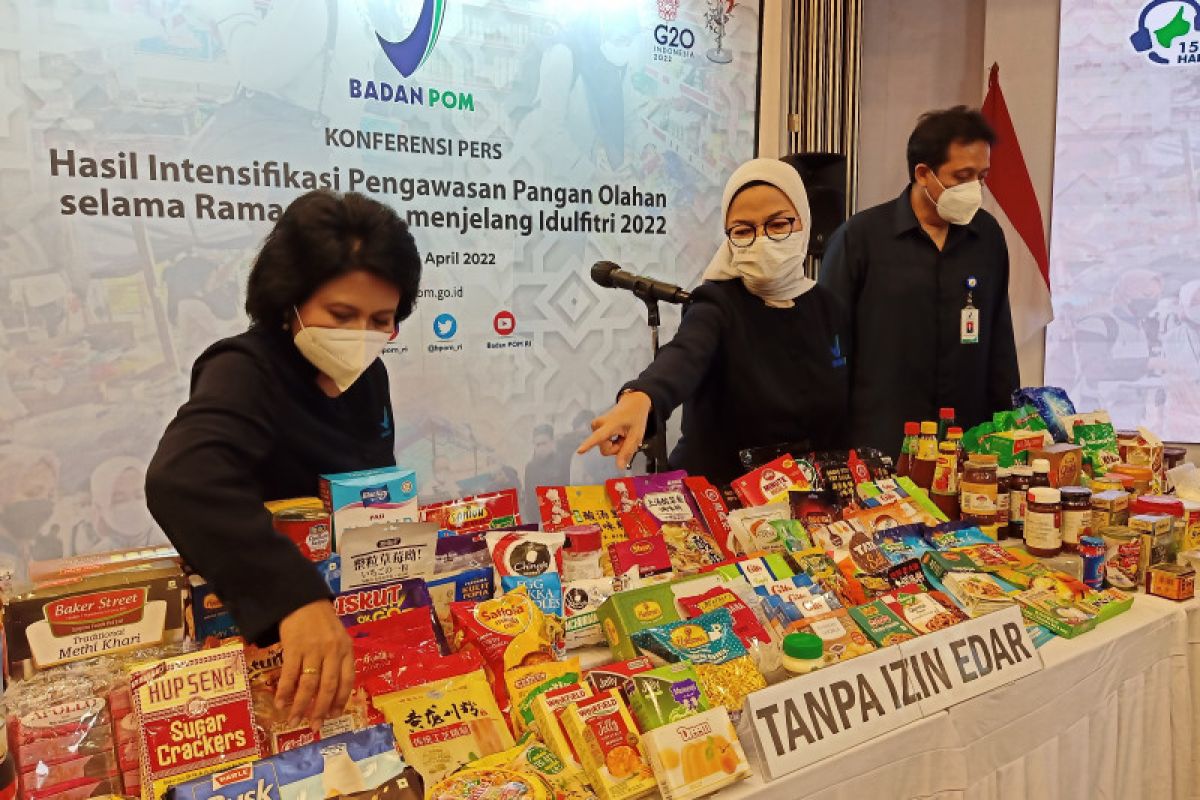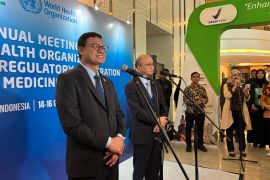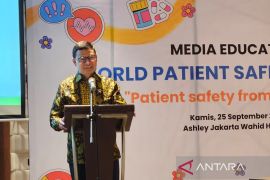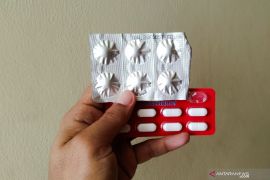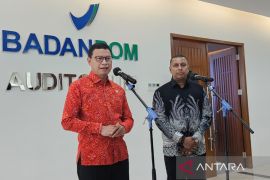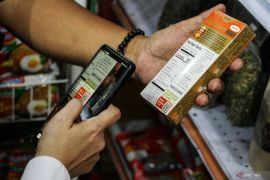BPOM head Penny K. Lukito said the percentage of illegal facilities and food has decreased by 8.63 percent compared to 2021.
"Of the 1,899 distribution facilities inspected this year, there are 601 (31.65 percent) distribution facilities included as TMK since they sold food products that were damaged, expired, and without distribution permits," Lukito informed at a press conference in Jakarta on Monday.
They comprised 576 retail facilities, 22 distributors, two e-commerce warehouses, and one importer. The total number of TMK food products was recorded at 2,594 out of a total of 41,709 products that are estimated to have a combined economic value of Rp470 million.
Most TMK products, or 57.16 percent, comprised expired food and were detected in Manokwari, Tanimbar Islands, Ambon, Manado, and Rejang Lebong.
Meanwhile, 37.80 percent of the products were found to be sold without a distribution permit in Makassar, Tarakan, Bandung, Palembang, and Rejang Lebong, she added.
Meanwhile, 5.03 percent of the food products were damaged. These were detected in Manokwari, Ambon, Baubau, Yogyakarta, and Banyumas.
Lukito said that the five most common types of food that were sold without a distribution permit were food additives, ready-to-use spices, extruded snacks, flavored drinks, and coffee powder drinks.
Related news: Indonesian Food and Drug Supervisory Agency unearths 2,939 food items
Meanwhile, the five most common types of expired food were ready-to-use spices, coffee powder drinks, flavored powder drinks, biscuits, and bakery products.
The most commonly found expired foods were sweetened condensed milk (SKM), sauces, canned fish, ultra-high temperature (UHT) milk/sterile milk, and biscuits, Lukito informed.
Meanwhile, an examination of 7,200 samples of snacks that are commonly consumed during Ramadan showed that 109 samples, or 1.51 percent of the snacks, contained prohibited ingredients such as formaldehyde (0.72 percent), rhodamine B (0.45 percent), and borax (0.34 percent).
"There was no abuse of methanyl yellow (a coloring agent) in the food examined," she noted.
The number of snacks commonly consumed during Ramadan that contained prohibited ingredients also decreased by 0.26 percent this year.
"The hard work from BPOM with related sectors has successfully reduced the number of TMK products. Through communication, information, and education, as well as the School Food Snack Program (PJAS), the Community-Based Safe Market Program, and assistance to business actors in production and distribution facilities, we managed to reach this achievement," Lukito said.
BPOM has intensified food supervision from March 28 to May 6, 2022, which is being carried out independently by 73 BPOM Units spread throughout Indonesia as well as in an integrated manner in collaboration with regional officials.
The intensification of food control is being carried out to protect the public from unsafe processed food.
Related news: BPOM seizes illegal herbal, processed food products sold on web
Related news: BPOM streamlines permit issuance for processed food distribution
Translator: Andi Firdaus, Resinta S
Editor: Suharto
Copyright © ANTARA 2022
